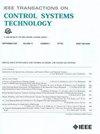因果关系数据驱动的预测控制
IF 3.9
2区 计算机科学
Q1 AUTOMATION & CONTROL SYSTEMS
引用次数: 0
摘要
作为通用的基于模型的控制方案的一种有用和有效的替代方案,数据驱动的预测控制(DDPC)受到偏差-方差权衡的影响,并且在面对不确定性时表现不佳。通过直接数据驱动控制与子空间预测控制(SPC)之间的联系,我们深入了解了缺乏因果关系是它们隐式预测高方差的主要原因。在本文中,我们推导了一种新的DDPC的因果关系信息公式及其正则化形式,它在控制成本最小化和因果多步预测器的隐式识别之间取得了平衡。由于所提出的因果关系通知公式只需要基于LQ分解的一般非因果DDPC中的子矩阵的块三角化,因此我们的因果关系通知DDPC公式具有计算效率。通过数值算例和在模拟工业加热炉无模型控制中的应用,研究了该方法的有效性。实验结果证实,该方法在处理随机噪声和过程非线性方面比现有公式有明显的性能改进。本文章由计算机程序翻译,如有差异,请以英文原文为准。
Causality-Informed Data-Driven Predictive Control
As a useful and efficient alternative to generic model-based control scheme, data-driven predictive control (DDPC) is subject to bias-variance tradeoff and is known to not perform desirably in face of uncertainty. Through the connection between direct data-driven control and subspace predictive control (SPC), we gain insight into the reason being the lack of causality as a main cause for their high variance of implicit prediction. In this brief, we derive a new causality-informed formulation of DDPC and its regularized form that balances between control cost minimization and implicit identification of a causal multistep predictor. Since the proposed causality-informed formulations only call for block-triangularization of a submatrix in the generic noncausal DDPC based on LQ factorization, our causality-informed formulation of DDPC enjoys computational efficiency. Its efficacy is investigated through numerical examples and application to model-free control of a simulated industrial heating furnace. Empirical results corroborate that the proposed method yields obvious performance improvement over existing formulations in handling stochastic noise and process nonlinearity.
求助全文
通过发布文献求助,成功后即可免费获取论文全文。
去求助
来源期刊

IEEE Transactions on Control Systems Technology
工程技术-工程:电子与电气
CiteScore
10.70
自引率
2.10%
发文量
218
审稿时长
6.7 months
期刊介绍:
The IEEE Transactions on Control Systems Technology publishes high quality technical papers on technological advances in control engineering. The word technology is from the Greek technologia. The modern meaning is a scientific method to achieve a practical purpose. Control Systems Technology includes all aspects of control engineering needed to implement practical control systems, from analysis and design, through simulation and hardware. A primary purpose of the IEEE Transactions on Control Systems Technology is to have an archival publication which will bridge the gap between theory and practice. Papers are published in the IEEE Transactions on Control System Technology which disclose significant new knowledge, exploratory developments, or practical applications in all aspects of technology needed to implement control systems, from analysis and design through simulation, and hardware.
 求助内容:
求助内容: 应助结果提醒方式:
应助结果提醒方式:


